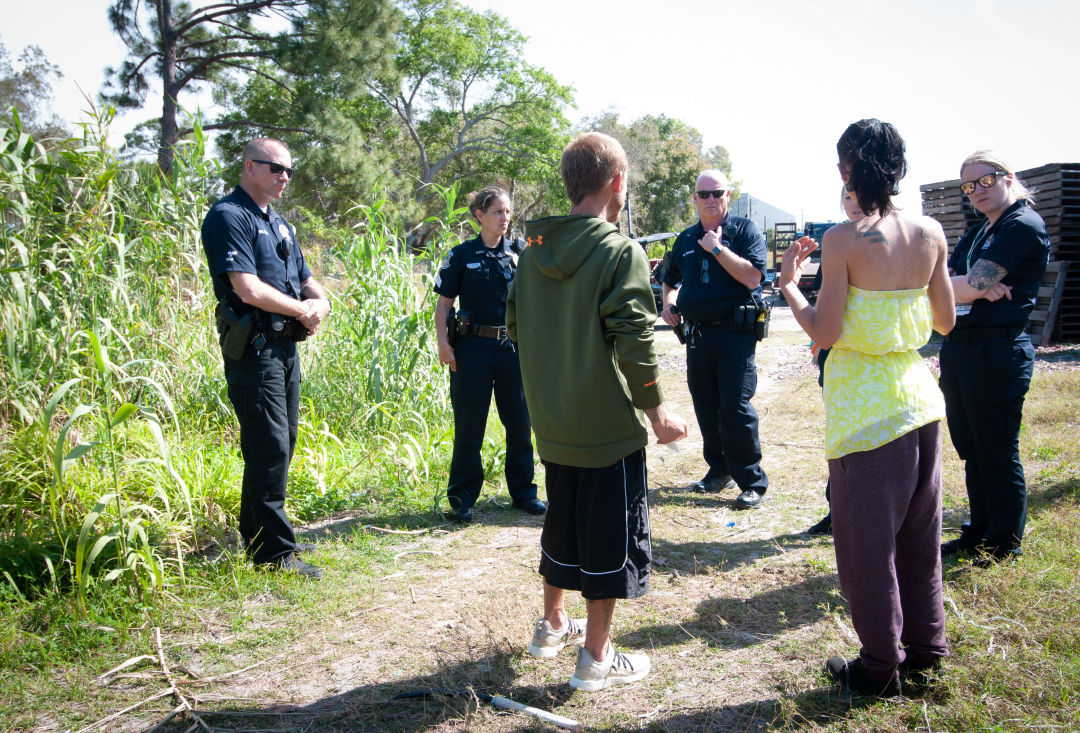Annual Survey Shows Drop in Area's Homeless Population

Members of the Sarasota Police Department and the City of Sarasota's Homeless Outreach Team talk with two homeless individuals before the onset of the COVID-19 pandemic.
Image: Barbara Banks
The number of homeless individuals in Sarasota and Manatee counties has dropped over the past year, according to new survey results. But the head of the organization that conducted the research warns that additional people will likely be displaced by the economic losses that have struck the area since the onset of the COVID-19 pandemic.
Every January, the Suncoast Partnership to End Homelessness conducts what is called a "Point in Time" survey, during which volunteers canvass the region in an attempt to identify all those who are homeless. This year's survey, which was conducted between Jan. 27 and 28, identified 1,044 homeless individuals, 8 percent fewer than in 2019 and 28.9 percent fewer than in 2016.
Chris Johnson, the chief executive officer of the Partnership, says one particular number stands out: a 23.6 percent decline year-over-year in the number of "chronically homeless" individuals in the area. Johnson says that data point shows that the "coordinated entry system" developed by organizations that assist the homeless to prioritize helping those most in need is working.
Because the survey was conducted before the spread of the coronavirus, the newly released numbers do not reflect a possible increase in homelessness caused by the economic chaos that has engulfed the nation. More than 40 million Americans are now out of work; one recent study suggested the nation's homeless population could increase by as much as 45 percent this year. Johnson says the Partnership and other nonprofits are working now to prepare for rising needs.
"What happens when eviction moratoriums are lifted?" Johnson says. "What happens to folks when they're hit with a three-day notice and told to get out? What happens when there's not enough homelessness prevention dollars in the system to make sure people can keep their housing? What capacity do we have in our system for people who, if not for COVID-19, would be housed? There's this wide swath of individuals and families that have the chance to enter homelessness for the first time."
According to Johnson, those individuals may not need the type of long-term help that others do. "They just need somewhere to land temporarily, so they're not sleeping in their car in a Walmart parking lot," he says. But they can be difficult to reach, Johnson says, because they are not as visible as other homeless populations, and they may not know what services are available to them.
Johnson encourages anyone struggling to make ends meet to call 211, a local hotline that connects people to nonprofits that can help them. "If someone needs help," Johnson says, "please call 211."



